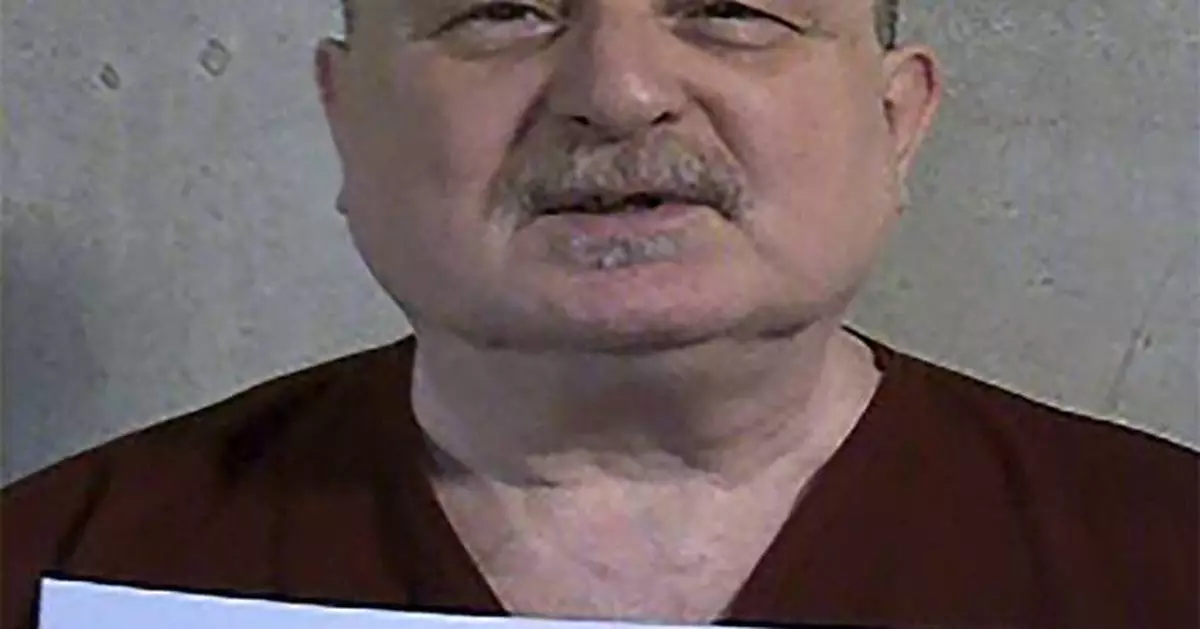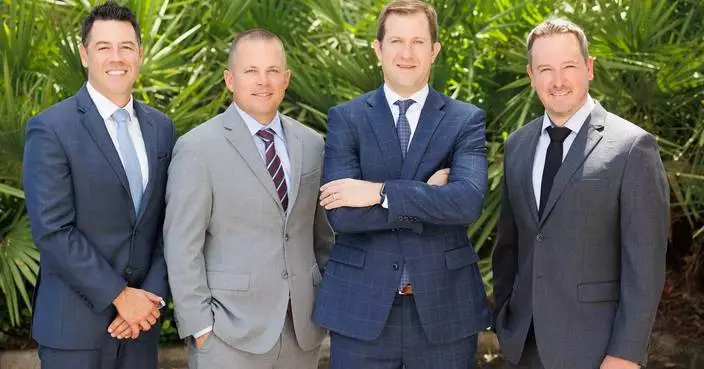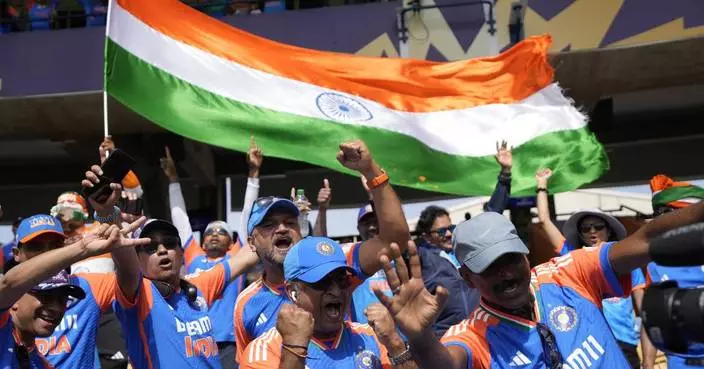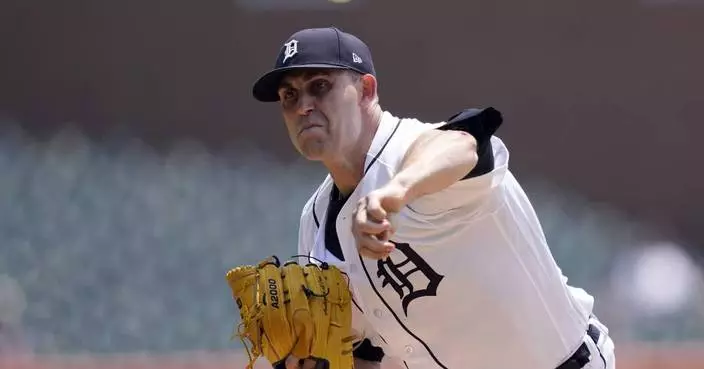McALESTER, Okla. (AP) — Oklahoma executed a man Thursday who was convicted of kidnapping, raping and killing his 7-year-old former stepdaughter in 1984.
Richard Rojem, 66, received a three-drug lethal injection at the Oklahoma State Penitentiary in McAlester and was declared dead at 10:16 a.m., prison officials said. Rojem, who had been in prison since 1985, was the longest-serving inmate on Oklahoma's death row.
When asked if he had any last words, Rojem, who was strapped to a gurney and had an IV in his tattooed left arm, said: “I don't. I've said my goodbyes.”
He looked briefly toward several witnesses who were inside a room next to the death chamber before the first drug, the sedative midazolam, began to flow. He was declared unconscious about 5 minutes later, at 10:08 a.m., and stopped breathing at about 10:10 a.m.
A spiritual adviser was in the death chamber with Rojem during the execution.
Rojem had denied responsibility for killing his former stepdaughter, Layla Cummings. The child’s mutilated and partially clothed body was discovered in a field in rural Washita County near the town of Burns Flat on July 7, 1984. She had been stabbed to death.
Rojem was previously convicted of raping two teenage girls in Michigan, and prosecutors said he was angry at Layla Cummings because she reported that Rojem sexually abused her, leading to his divorce from the girl’s mother and his return to prison for violating his parole.
Rojem’s attorneys argued at a clemency hearing this month that DNA evidence taken from the girl’s fingernails did not link him to the crime.
“If my client’s DNA is not present, he should not be convicted,” attorney Jack Fisher said.
In a statement read by Attorney General Gentner Drummond after the execution, Layla’s mother, Mindy Lynn Cummings, said: "We remember, honor and hold her forever in our hearts as the sweet and precious 7-year-old she was.
“Today marks the final chapter of justice determined by three separate juries for Richard Rojem's heinous acts nearly 40 years ago when he stole her away like the monster he was.”
Rojem, who testified at the hearing via a video link from prison, said he wasn’t responsible for the girl’s death. The panel voted 5-0 not to recommend to the governor that Rojem’s life be spared.
“I wasn’t a good human being for the first part of my life, and I don’t deny that,” said Rojem, handcuffed and wearing a red prison uniform. “But I went to prison. I learned my lesson and I left all that behind.”
Prosecutors said there was plenty of evidence to convict Rojem, including a fingerprint that was discovered outside the girl’s apartment on a cup from a bar Rojem left just before the girl was kidnapped. A condom wrapper found near the girl’s body also was linked to a used condom found in Rojem’s bedroom, prosecutors said.
A Washita County jury convicted Rojem in 1985 after just 45 minutes of deliberations. His previous death sentences were twice overturned by appellate courts because of trial errors. A Custer County jury ultimately handed him his third death sentence in 2007.
Oklahoma, which has executed more inmates per capita than any other state in the nation since the death penalty was reinstated in 1976, has now carried out 13 executions since resuming lethal injections in October 2021 following a nearly six-year hiatus resulting from problems with executions in 2014 and 2015.
Follow Sean Murphy on X at www.x.com/apseanmurphy
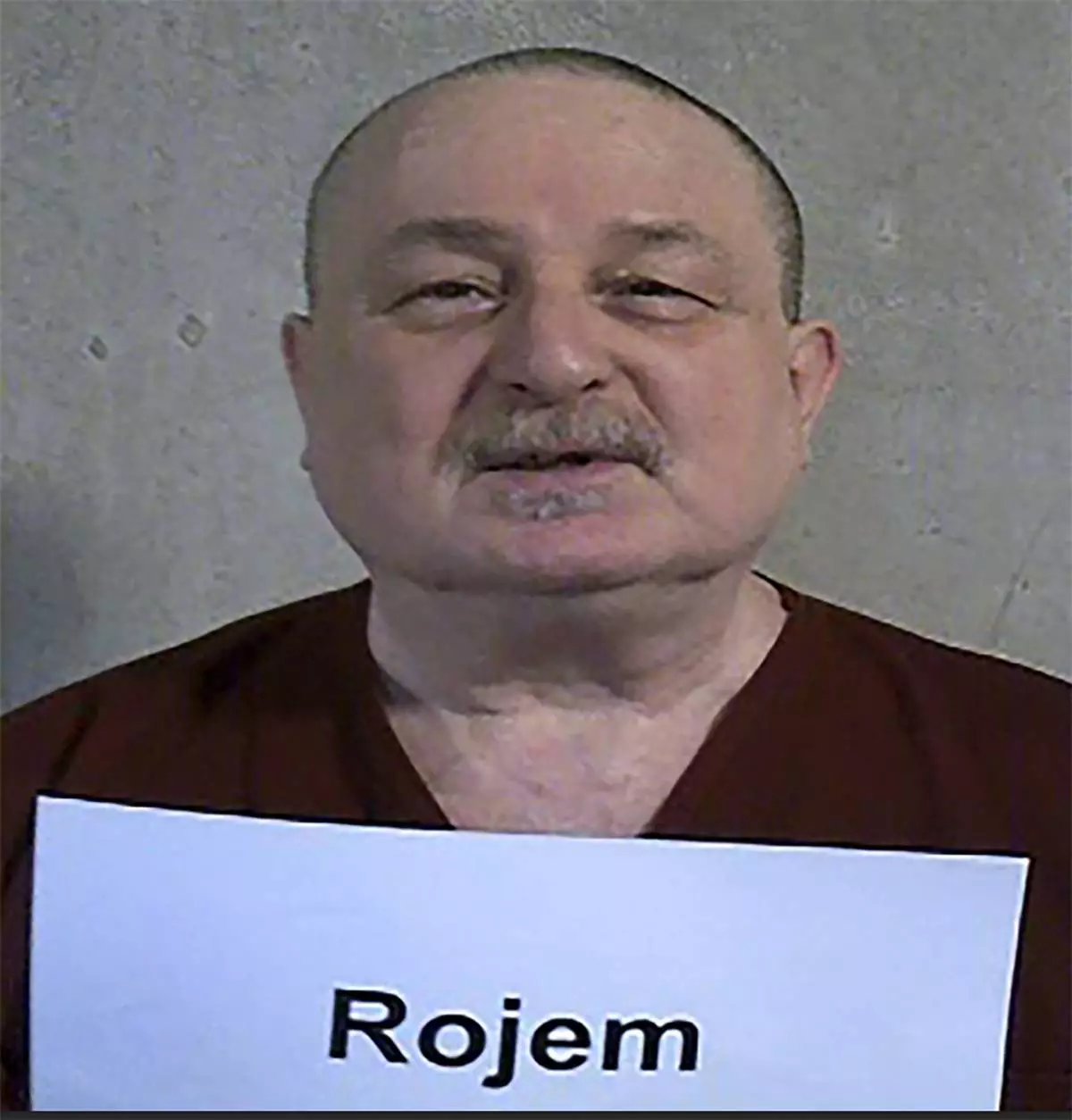
FILE - This photo provided by the Oklahoma Department of Corrections shows Richard Rojem, a death row inmate housed at the Oklahoma State Penitentiary in McAlester, Okla., Feb. 11, 2023. Oklahoma's Pardon and Parole Board is denying clemency for Rojem, convicted of raping and killing a 7-year-old girl in 1984. Monday's 5-0 decision paves the way for 66-year-old Richard Rojem to be executed by lethal injection on June 27, 2024. (Oklahoma Department of Corrections via AP, File)
WIMBLEDON, England (AP) — Novak Djokovic 's right knee has responded so well after surgery to repair a torn meniscus less than a month ago that he said Saturday he considers himself ready to contend at Wimbledon, where he has won seven of his 24 Grand Slam trophies.
And, no, he will not adjust how he plays to protect the knee.
“I don’t see myself holding back. I don’t see myself calculating or being a bit more cautious in the movement. I don’t see that happening,” Djokovic said at a pre-tournament news conference Saturday. "Really, I go all in. I go full out. I mean, that’s the way I’ve been playing my entire career."
When a reporter asked Djokovic why he would risk getting back on court at all so soon after the surgery, the player said his wife posed the very same question.
Djokovic, who has yet to reach a final at any event in 2024, described what he called an “incredible desire to play, just to compete” and added that Wimbledon, in particular, has held a special place in his heart since he was a kid.
So, Djokovic continued, merely “the thought of me missing Wimbledon was just not correct; I didn’t want to deal with that.”
He explained that while he was “very much in doubt of making” it to the All England Club after getting hurt at the French Open on June 3, he is far more optimistic after a week of practices at the site of the grass-court major that begins Monday.
“All the days that I’ve spent here,” he said, “give me only positive signs and encourage me to really think — not just think, but feel — that I can do it.”
His first-round match against qualifier Vit Kopriva is scheduled for Tuesday.
“I didn’t come here to play a few rounds and prove to myself and others that I can actually compete in one or two matches. I really want to go for the title,” said Djokovic, who is seeded No. 2 behind Jannik Sinner and was the runner-up to Carlos Alcaraz a year ago at Wimbledon. “The last three days have given me enough optimism and good signs that I can actually be in a state to compete on the highest level for the next few weeks, hopefully.”
The 37-year-old from Serbia was hurt during a five-set victory over Francisco Cerundulo in the fourth round at Roland Garros, withdrew before he was supposed to play in the quarterfinals and underwent an operation in Paris on June 5.
After wearing a gray sleeve on his right leg while playing practice sets at the All England Club with players including Australian Open champion Sinner, 2021 U.S. Open winner Daniil Medvedev and Frances Tiafoe, Djokovic said there haven't been any setbacks and he is “confident about the health of my knee.”
Djokovic said he had “extensive conversations” with other athletes who have recovered from similar knee procedures, among them tennis players Taylor Fritz and Stan Wawrinka, and retired Olympic champion ski racer Lindsey Vonn.
In 2021, Fritz injured his knee at the French Open and returned to competition at Wimbledon three weeks later.
Alcaraz said he considered Djokovic superhuman for being able to come back so quickly.
When that comment was relayed to Djokovic, he grinned.
“Well, not really. I think Taylor Fritz is a superhuman. He recovered in 21 days; I (had) a bit more (time)," Djokovic said.
“It’s not ideal, maybe, in the eyes of the doctors and specialists that would normally tell you it’s normally between three and six weeks. The closer to six weeks the better, probably, because you want to not risk too much and give your knee and your body time," he said. "But it’s also individual. It’s very subjective. Everyone has a different response to the recovery, to the injury, to rehab, to exercises.”
AP tennis: https://apnews.com/hub/tennis
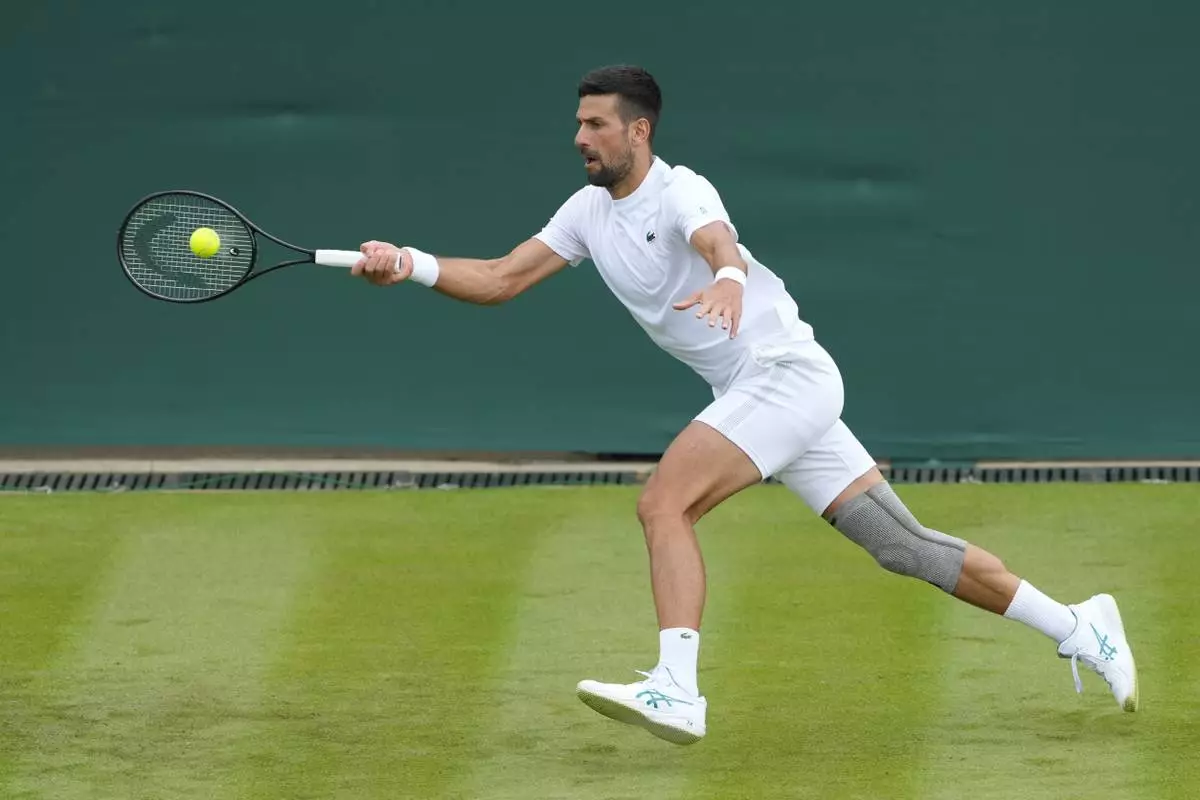
Novak Djokovic of Serbia plays a return during a training session on Court 2 at the All England Lawn Tennis and Croquet Club in Wimbledon, London, Friday, June 28, 2024. The Wimbledon Championships begin on July 1. (AP Photo/Kirsty Wigglesworth)
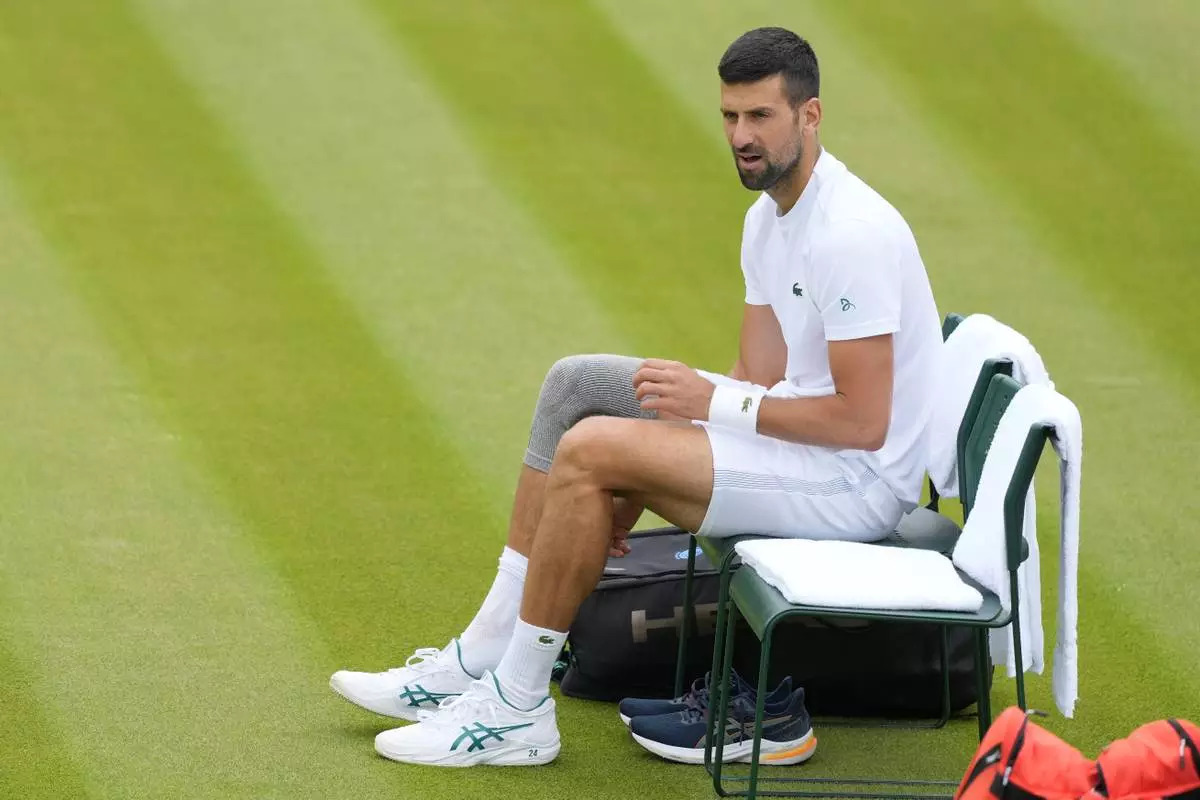
Novak Djokovic of Serbia sits in his chair during a training session on Court 2 at the All England Lawn Tennis and Croquet Club in Wimbledon, London, Friday, June 28, 2024. The Wimbledon Championships begin on July 1. (AP Photo/Kirsty Wigglesworth)
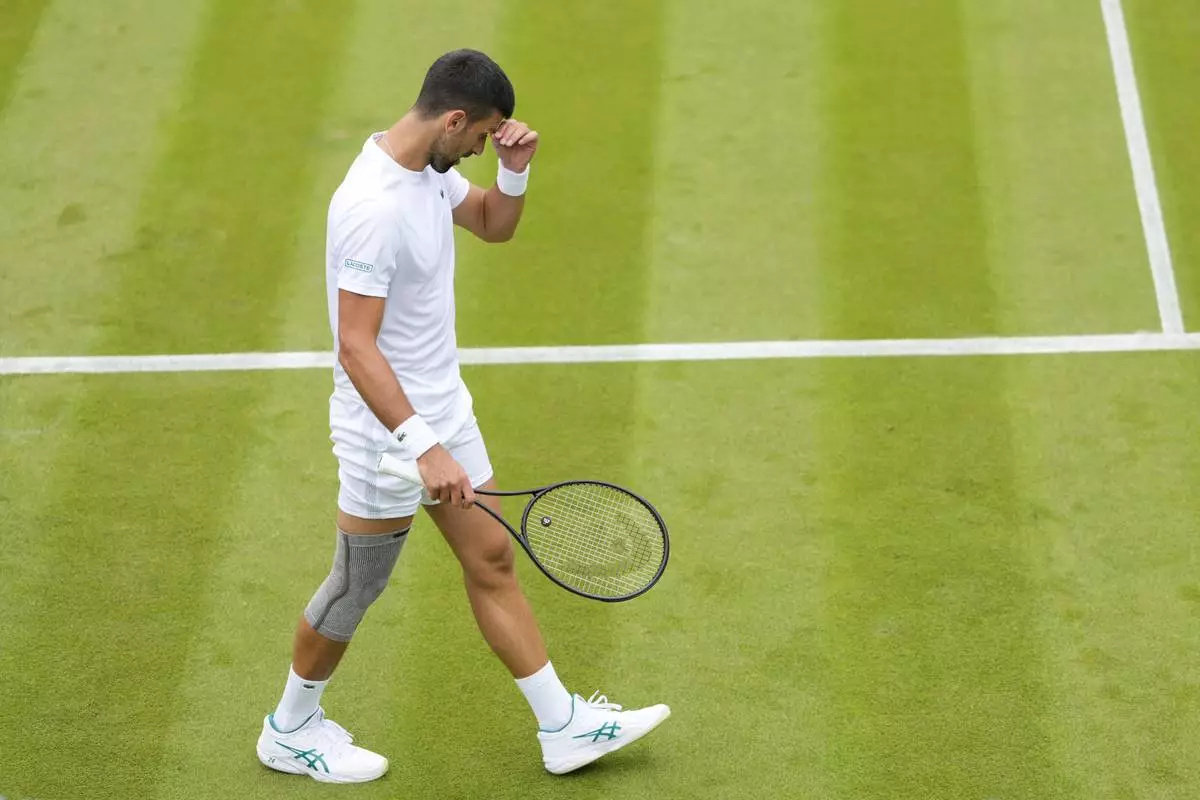
Novak Djokovic of Serbia wipes his face during a training session on Court 2 at the All England Lawn Tennis and Croquet Club in Wimbledon, London, Friday, June 28, 2024. The Wimbledon Championships begin on July 1. (AP Photo/Kirsty Wigglesworth)



